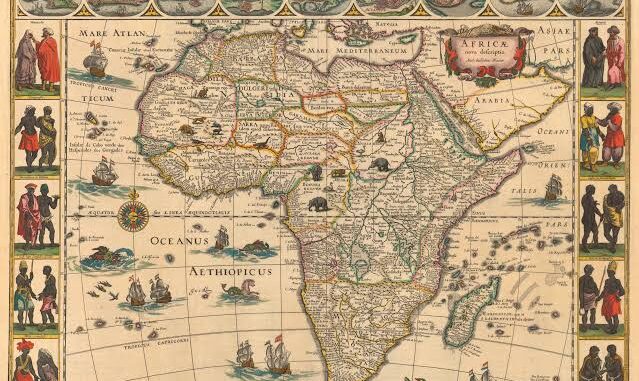
When we say “Africa” today, we often imagine a vast continent rich in culture, history, and natural resources. But what if we told you that the name “Africa” is not what the indigenous people of this land originally called it? That it was, in fact, a name imposed from the outside, rooted in conquest, colonialism, and historical erasure? For centuries before the world knew it as “Africa,” the continent bore different names, each representing its spiritual, geographic, or cultural significance….Read more….>>>
Let’s journey into the forgotten past to rediscover what Africa was originally called, why the name changed, and who made that change.
What Was Africa Originally Called?
Africa, before colonial history, had many indigenous names depending on the region and language spoken by the people. However, the entire landmass itself was often referred to by broader names with deep symbolic meaning. Here are some of the names believed to have described all or significant parts of what we now call Africa:
1. Alkebulan
One of the most commonly cited ancient names for Africa is Alkebulan (pronounced Al-ke-bu-lan), a word of possibly Arabic or indigenous origin. Meaning “Mother of Mankind” or “Garden of Eden,” Alkebulan is believed to be the oldest name for Africa and was used by the Moors, Nubians, Carthaginians, and Ethiopians.
Unlike the word “Africa,” which is Latin in origin, Alkebulan comes from the native tongues of the people who lived on the continent. It denotes strength, identity, and a powerful spiritual connection to the land and its origins.
2. Kemet and Ta-Mery
In the northeastern region of the continent, ancient Egyptians (Kemites) referred to their land as Kemet, meaning “Black Land,” due to the rich black soil of the Nile Valley. Egypt itself was considered part of a broader region sometimes referred to as Ta-Mery, or “Beloved Land.”
These names were not just geographic—they were deeply tied to the people’s identity, cosmology, and way of life. The Nile Valley civilizations were advanced, with complex societies and knowledge systems, long before European intervention.
Why Was the Name Changed?
The name “Africa” as we know it today emerged during the Roman occupation. The Romans named their new colony in the northern part of the continent “Africa Terra,” meaning the land of the Afri. The Afri were a group of Berber tribes living near Carthage (modern-day Tunisia).
Here’s a step-by-step breakdown of how the name evolved:
- Carthage and Rome: After the defeat of Carthage in the Punic Wars, Rome took control of the region and established the province Africa Proconsularis around 146 BCE.
- Expansion of the Name: As European knowledge of the continent expanded, the term “Africa” was gradually used to describe more and more territory, eventually encompassing the entire landmass.
- Colonial Mapping: With the Scramble for Africa and colonialism in the 19th century, European powers drew arbitrary borders and reinforced the Latin-based term “Africa” in global discourse, erasing older indigenous names from maps, literature, and education.
In short, the name “Africa” stuck not because it was agreed upon by the people of the continent, but because it was imposed through colonization, documentation, and global usage.
Who Changed It and Why It Matters
The change came primarily through Roman imperialism, but was later cemented by European colonialism. Over centuries, indigenous names were slowly erased or suppressed in favor of Latin or European nomenclature. The act of renaming is a powerful colonial tool it strips people of their history, reshapes their identity, and defines them through the eyes of the conqueror.
By renaming a land, colonizers don’t just claim territory they claim authority over memory.
The Romans, and later the European powers, imposed new maps, new languages, and new identities onto African peoples. This is why revisiting names like Alkebulan is not just about curiosity it’s about reclaiming stolen heritage.
Reclaiming the Past: A Cultural Awakening
Today, many Afrocentric historians and cultural scholars advocate for the revival of the name Alkebulan and other indigenous references. The movement isn’t about changing a name on a map—it’s about reawakening identity, healing historical wounds, and reviving pride in African heritage.
This awakening encourages us to ask:
- How do names shape our understanding of self and history?
- What other indigenous knowledge have we lost to colonial rewriting?
- Can reclaiming ancient names inspire unity among African peoples and the diaspora?
Conclusion
“Africa” is what the world calls this great continent. But beneath that name lies a rich, often suppressed legacy of indigenous identities. Names like Alkebulan, Kemet, and Ta-Mery are more than relics they are symbols of a deep and complex history that predates colonial conquest by millennia.
Knowing this history is the first step toward reclaiming the narrative. It reminds us that Africa was not born from conquest, but from civilization, wisdom, and resilience. And as the world continues to rediscover the contributions of African societies, perhaps it’s time we also remember what the land was originally callednot by its colonizers, but by its own children.
Leave a Reply